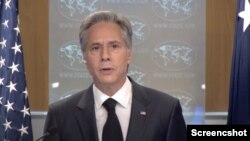ສ ປປ ລາວ ທີ່ປົກຄອງດ້ວຍພັກດຽວກໍຄືພັກປະຊາຊົນປະຕິວັດລາວນັ້ນ ຍັງມີການລະເມີດສິດທິມະນຸດຢ່າງຫລວງຫລາຍ, ອີງຕາມລາຍງານປະຈຳປີ 2022 ດ້ານສິດທິມະນຸດຂອງກະຊວງການຕ່າງປະເທດສະຫະລັດ. ກ່ອນອື່ນໝົດຈະເຫັນໄດ້ຈາກການເລືອກຕັ້ງສະພາແຫ່ງຊາດໃນເດືອນພະຈິກ ປີ 2021 ຜ່ານມາທີ່ດຳເນີນໄປແບບບໍ່ມີເສລີພາບ ແລະບໍ່ຍຸຕິທຳ ເພາະທຸກຄົນຕ້ອງໄປປ່ອນບັດໂດຍບໍ່ກ່ຽວກັບວ່າ ເຂົາເຈົ້າສະໝັກໃຈຫລືບໍ່. ດ້ານທີສອງກໍຄື ນອກຈາກມີກະຊວງຮັກສາຄວາມສະຫງົບແລ້ວ ກໍຍັງມີກຳລັງປະກອບອາວຸດພາຍໃຕ້ກະຊວງປ້ອງກັນປະເທດອີກ ທີ່ຮັບຜິດຊອບດູແລຄວາມສະຫງົບຢູ່ພາຍໃນປະເທດ ຊຶ່ງກຳລັງທະຫານທີ່ວ່ານີ້ ຈຳນວນນຶ່ງໄດ້ລະເມີດສິດທິມະນຸດຢ່າງໜັກ. ມີລາຍງານທີ່ໜ້າເຊື່ອຖືໄດ້ວ່າ ມີການກັກຂັງຄົນແບບພາລະການ, ຈັບນັກໂທດການເມືອງ, ການດຳເນີນຄະດີຍັງຂາດຄວາມເປັນອິດສະຫລະ, ຂາດເສລີພາບໃນການສະແດງຄວາມຄິດເຫັນຢ່າງເປີດເຜີຍ ແລະໃນການອອກຂ່າວ ຊຶ່ງລວມມີການສິ້ງຊອມຕິດຕາມເບິ່ງ ແລະການໃຊ້ກົດໝາຍກ່ຽວກັບການໃສ່ຮ້າຍປ້າຍສີລັດຖະບານ, ລະບຽບຈຳກັດໃນການໃຊ້ອິນເຕີແນັດ ແລະມີການເຂົ້າໄປແຊກແຊງການໂຮມຊຸມນຸມ ແລະການຈັດຕັ້ງສະມາຄົມຢ່າງສັນຕິແລະມີເສລີພາບ, ພ້ອມທັງການຫ້າມເຂົ້າຮ່ວມການເຄື່ອນໄຫວດ້ານການເມືອງຢ່າງເສລີ.
ເຖິງແມ່ນວ່າ ລັດຖະບານຈະດຳເນີນຄະດີ ແລະລົງໂທດ ຕໍ່ພະນັກງານທີ່ສໍ້ລາດ ບັງຫລວງກໍຕາມ ແຕ່ບໍ່ມີການດຳເນີນຄະດີຫລືລົງໂທດຕໍ່ພະນັກງານທີ່ກະທຳຜິດໃນດ້ານອື່ນ ແລະຕຳຫລວດ ພ້ອມກັບເຈົ້າໜ້າທີ່ຮັກສາຄວາມໝັ້ນຄົງໄດ້ລະເມີດສິດທິມະນຸດໂດຍບໍ່ຖືກໂທດ ຫລືເອົາຄວາມຜິດແຕ່ຢ່າງໃດເລີຍ./
ອ່ານຂ່າວນີ້ເພີ້ມເປັນພາສາອັງກິດຢູ່ລຸ່ມນີ້:
The Lao People’s Democratic Republic is an authoritarian centralized one-party state ruled by its only constitutionally authorized party, the Lao People’s Revolutionary Party. National Assembly elections held in February 2021 were not free or fair. The ruling party selected all candidates and voting was mandatory for all citizens. In March 2021 the National Assembly approved Phankham Viphavan as prime minister.
The Ministry of Public Security maintains internal security and is responsible for law enforcement; the ministry oversees local, traffic, immigration, and security police, village police auxiliaries, and other armed police units. The armed forces, under the Ministry of Defense, also have some domestic security responsibilities, including counterterrorism, counterinsurgency, and border security. Civilian authorities generally maintained effective control over the security forces. There were credible reports that members of the security forces committed some abuses.
Significant human rights issues included credible reports of: arbitrary detention; political prisoners; serious problems with the independence of the judiciary; serious restrictions on free expression and media, including censorship and the use of criminal defamation laws; serious restrictions on internet freedom; substantial interference with the freedom of peaceful assembly and freedom of association; inability of citizens to change their government peacefully through free and fair elections; serious restrictions on political participation; serious government corruption; lack of investigation of and accountability for gender-based violence including but not limited to domestic or intimate partner violence; and outlawing of independent trade unions.
While the government prosecuted and punished officials for corruption, there were no prosecutions or punishments for officials who committed other abuses, and police and security forces committed human rights abuses with impunity.




